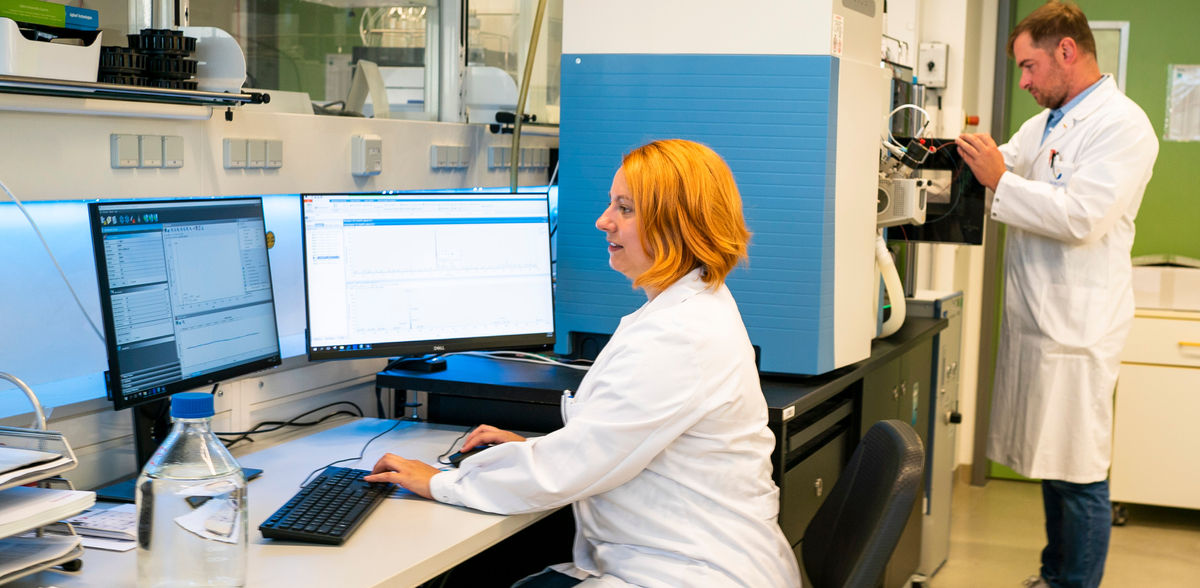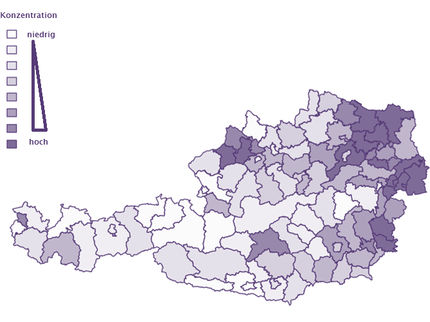Innovative biocatalysts reduce pharmaceutical residues in wastewater
In a new interdisciplinary project, researchers are investigating the use of novel enzymes to remove micropollutants from municipal wastewater
Medicines are good for our bodies. However, depending on the type of drug, up to 90 percent of the active ingredient is excreted unchanged and thus ends up in wastewater. Improper disposal of pharmaceutical products in toilets and washbasins also leads to residues that can only be partially intercepted in wastewater treatment plants. The remaining substances are then discharged with the treated water into surface waters. Residues can therefore be detected in bodies of water as well as in drinking water – albeit in much smaller quantities.
A new filter technology based on enzyme-functionalized biopolymer modules could provide a remedy. In their project “Elimination of mi-cropollutants from municipal wastewater using immobilized en-zymes (ELMIK),” researchers at the Brandenburg University of Tech-nology Cottbus-Senftenberg (BTU) and TUD Dresden University of Technology (TU Dresden) are developing, testing and evaluating how enzymes bound to carrier materials can break down micropollutants in an innovative process. These enzymes could be used in an adapted fil-ter cartridge in wastewater treatment plants to permanently remove pharmaceutical residues. The best part? This technology produces no toxic by-products and the cost is comparatively low. What’s more, the research results can also be transferred to other applications, such as spray residues of pesticides in agriculture, disinfectants or deicing agents. Completion of the first prototype is planned for 2026.
Speaking on the topic, Judith Pirscher, State Secretary at the Federal Ministry of Education and Research (BMBF), said, “Clean water is es-sential to our health and the health of ecosystems. It’s easy to take clean water for granted. Therefore, protecting our water resources from contamination is intrinsic to sustainable business and development, especially in former coal regions such as Lusatia. The Federal Ministry of Education and Research has been funding successful projects for the removal of micropollutants and pathogens from water for a number of years. ELIMIK now seeks to explore the industrial exploitation of enzymes for the removal of pharmaceutical residues in wastewater treatment plants. This protects our water resources while advancing sustainable development in Lusatia.”
Dr. Manja Schüle, Minister for Business, Research and Culture (MWFK) in Brandenburg explained, “Clean drinking water – has never been so valuable as it is today! But how can we catch pharmaceutical res-idues and other micropollutants from municipal wastewater? Scientists and researchers from BTU Cottbus-Senftenberg and TU Dresden are working together in the interdisciplinary ELIMIK project to find a ground-breaking answer to this question. I'm already looking forward to the new technology that will filter drinking water with the help of enzymes. Another project in Lusatia conducting research on and for the future!”
The interdisciplinary research team at BTU Cottbus-Senftenberg and TU Dresden boast outstanding expertise in the fields of enzymatic degradation, porous carbon and carrier materials. The researchers are being supported by municipal water treatment companies Stadtentwässerung Dresden GmbH and Wasserverband Lausitz.
The project is being carried out in the Enzyme Technology research group at the Institute of Biotechnology and the Technical Chemistry re-search group at the Institute of Materials Chemistry of the BTU Cottbus-Senftenberg as well as at TU Dresden’s International Institute Zittau and will run for a period of three years. The project is funded by the Federal Ministry of Education and Research (BMBF) as part of Coal Structural Development Act with a total of just under EUR one million.




















































